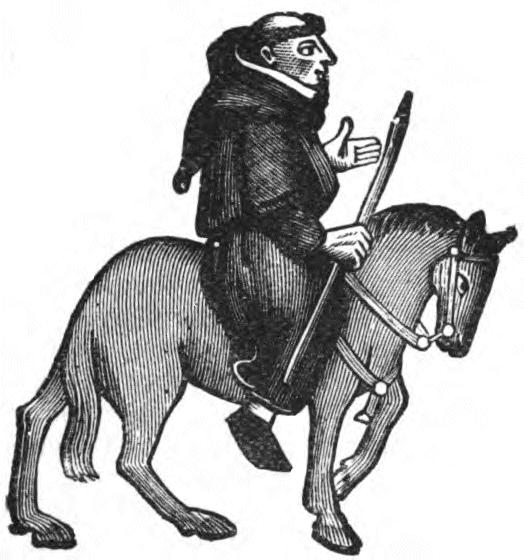
Wednesday
Like many, I had hopes that Pope Francis’s Vatican meeting on clergy sexual abuse would yield something substantial, and like many I have been disappointed. The pope, according to the New York Times,
decided that the best way for the church to address the problem lay not in issuing an edict from Rome but in setting out to change the hearts and minds of church leaders at the local level around the world.
The pope used the meeting to try to persuade skeptical bishops to take strong action against abusive clerics and to hold themselves accountable for protecting the faithful in their dioceses, rather than simply changing church law himself.
Now I’m wondering why I was hopeful at all. After all, clergy sexual abuse has been going on at least as far back as Geoffrey Chaucer, who describes a friar (Huberd) that takes advantage of the young and vulnerable. Pope Francis’s appeal to shame would make no impression on Huberd.
The Friar is one of Chaucer’s more despicable pilgrims and that’s saying a lot. A member of a mendicant order, he must make his living begging, but he does fairly well by offering easy absolution for the sins of the wealthy, for which he receives substantial financial remuneration. As Chaucer ironically puts it, a hard-hearted man has such difficulty repenting of his sins that an easy blessing relieves him of his suffering. He can find peace by giving silver to mendicant friars:
[The friar] heard confession very sweetly,
And his absolution was pleasant:
He was a lenient man in giving penance,
Where he knew he would have a good gift.
For to give to a poor order
Is a sign that a man is well confessed;
For if he gave, he [the friar] dared to assert,
He knew that a man was repentant;
For many a man is so hard in his heart,
He cannot weep, although he painfully suffers.
Therefore instead of weeping and prayers
One may give silver to the poor friars.
As bad as this business is, the Friar is even worse when it comes to sex. The naïve narrator, who puts a positive spin on everything, commends Huberd for paying the dowries of young women who have become pregnant, not realizing that the friar himself is the father:
In all the four orders of friars is no one that knows
So much of sociability and elegant speech.
He had made very many a marriage
Of young women at his own cost.
The giveaway is “sociability and elegant speech,” and we later learn that the Friar has other enticements at his disposal as well:
His hood was always stuffed full of knives
And pins, to give to fair wives.
And certainly he had a merry voice:
He well knew how to sing and play on a rote [string instrument];
And then there are his wooing ways:
Somewhat he lisped, for his affectation,
To make his English sweet upon his tongue;
And in his harping, when he had sung,
His eyes twinkled in his head exactly
As do the stars in the frosty night.
The Friar is named after St. Hubert, the patron saint of hunters. Think of young women as his prey.
The Friar’s Prologue and Tale follow the Wife of Bath’s tale. He has attacked her for, I believe, the way she takes her life into her own hands, and she counterattacks by pointing out the lasciviousness of friars. Now that all evil spirits have been chased from the land by the friars’ holy water, she says, all that a young maid need fear are the friars themselves:
But now no man can see any more elves,
For now the great charity and prayers
Of licensed beggars and other holy friars,
That overrun every land and every stream,
As thick as specks of dust in the sun-beam,
Blessing halls, chambers, kitchens, bedrooms,
Cities, towns, castles, high towers,
Villages, barns, stables, dairies --
This makes it that there are no fairies.
For where an elf was accustomed to walk
There walks now the licensed begging friar himself
In late mornings and in early mornings,
And says his morning prayers and his holy things
As he goes in his assigned district.
Women may go safely up and down.
In every bush or under every tree
There is no other evil spirit but he,
And he will not do them any harm except dishonor.
The Wife’s putdown reminds me of clergy victims who are protesting the pope’s weak measures. Unfortunately, if we go by the entitled Friar, we can’t expect them to be successful. His major concern is not the Wife, whom he dismisses as ignorant, but the Summoner, who wants to blackmail the same people that the Friar absolves. Both are competing for the same pot of money (absolution trumps a summons), so the Friar tells a tale about an evil Summoner.
In other words, to get the Church’s attention, go after their finances, not their fornication.

